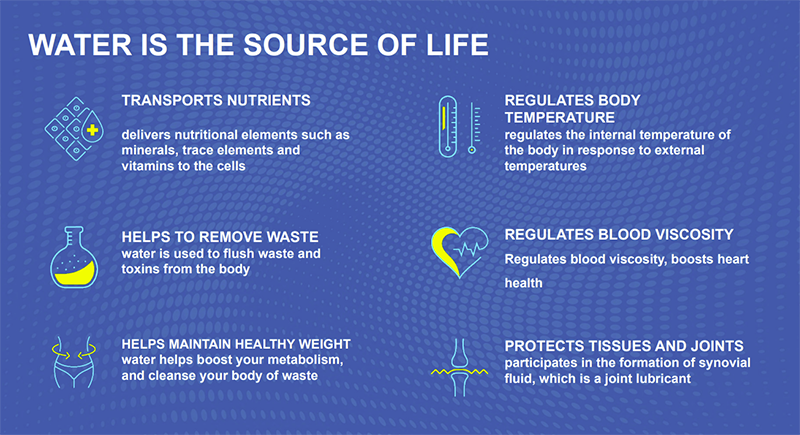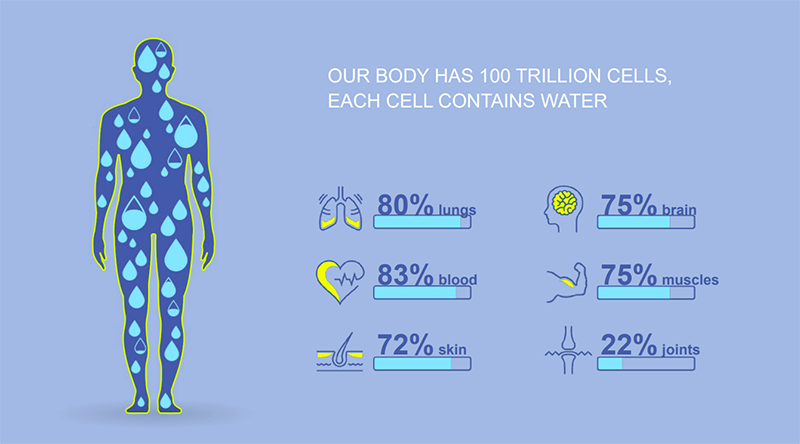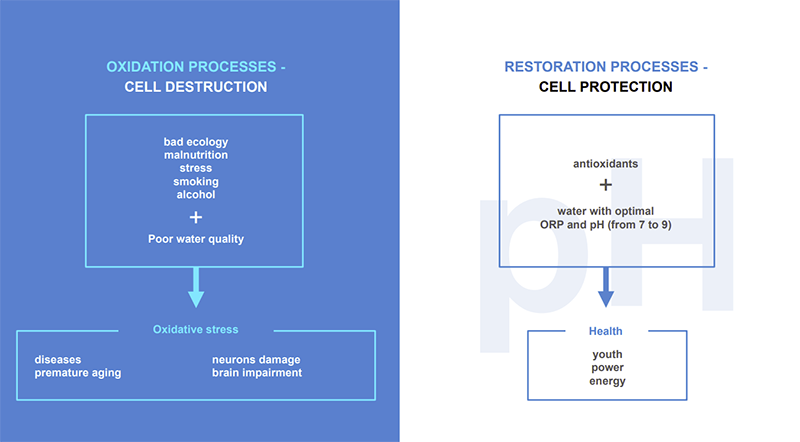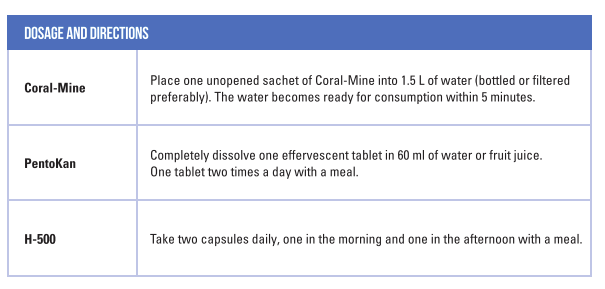This pack supports optimal hydration of the whole body. The products in the pack help to normalize the water-salt balance as well as the acid-base balance in the body, improve the quality of water and help the body increase working capacity and stamina.
Hydramax properties:
*After pressing this button, you will be redirected to Coral Club’s official online
store, where the price of the product in your region, as well as its availability, will be indicated.
Coral Club membership program with a discount of 20% and more
Register for a discount card and receive - 20% forever


What Water to Drink:
Regeneration processes, involving hydrogen, aim to renew and protect cells. Antioxidants play a crucial role in neutralizing the action of free radicals within the body.

The ORP of the human body’s internal environment is typically negatively charged, ranging from 100 to -200 millivolts. Blood ORP, which circulates throughout the body and carries nutrients and oxygen to the cells, is around -70 mV.
When the ORP of water closely matches the ORP of the body’s internal environment, it becomes easier for the body to utilize such water in metabolic processes. This is because less energy is required to correct the activity of water electrons before they enter the cell.
Before taking the products, please read the enclosed instructions.
Duration of dosage is 30 days.
With Coral-Mine, it is recommended to drink at least 1.5 liters of water every day. The average daily fluid intake for adults is 30-40 ml per kilogram of body weight. The goal is to consume water in 200-250 ml portions before meals and between meals. It is not advisable to drink during meals.
Increase fluid intake during hot weather or when exercising. The body absorbs herbal teas, fruit juices, and vegetable juices well; these beverages can constitute up to one-third of the total daily fluid intake.
Alcoholic beverages, coffee, and smoking increase dehydration. Excessive consumption of salty, spicy, and fried foods leads to fluid retention in the body and exacerbates the feeling of thirst. This can negatively affect the functioning of the cardiovascular system and kidneys. Sweet carbonated drinks raise blood sugar levels and increase thirst.